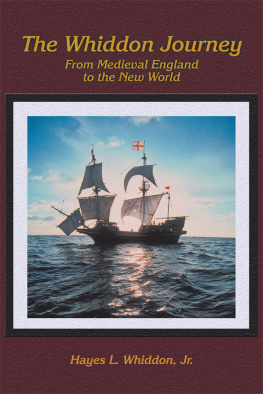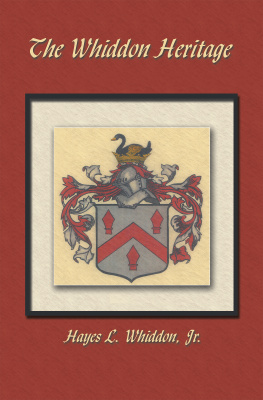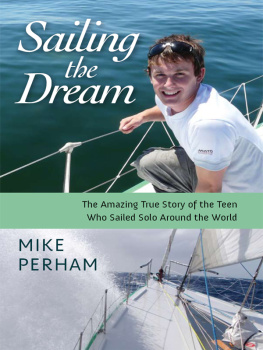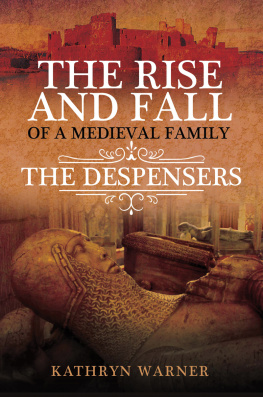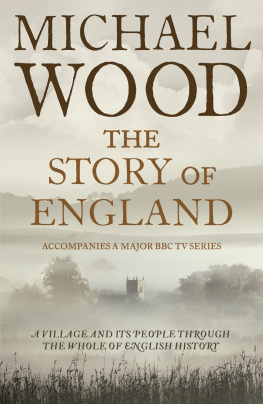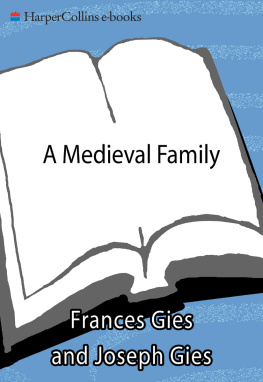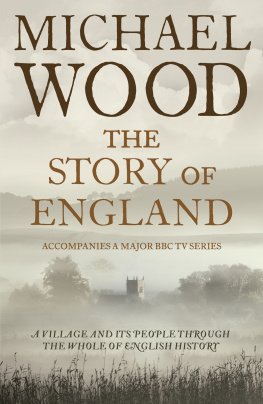The Whiddon Journey
From Medieval England
to the New World
Hayes L. Whiddon, Jr.

AuthorHouse
1663 Liberty Drive
Bloomington, IN 47403
www.authorhouse.com
Phone: 1 (800) 839-8640
2016 Hayes L. Whiddon, Jr. All rights reserved.
No part of this book may be reproduced, stored in a retrieval system, or transmitted by any means without the written permission of the author.
Published by AuthorHouse 09/07/2016
ISBN: 978-1-5246-2727-0 (sc)
ISBN: 978-1-5246-2728-7 (hc)
ISBN: 978-1-5246-2726-3 (e)
Library of Congress Control Number: 2016914360
Because of the dynamic nature of the Internet, any web addresses or links contained in this book may have changed since publication and may no longer be valid. The views expressed in this work are solely those of the author and do not necessarily reflect the views of the publisher, and the publisher hereby disclaims any responsibility for them.
Contents
PART I
The Whiddons of Chagford
PART II
The Puritan Preachers
PART III
Naval Heroes
PART IV
Whiddons in America
First Generation
John Whiddon, the Immigrant
Second Generation
William Whiddon
Third Generation
William Whiddon
Fourth Generation
William Whiddon R.S
Fifth Generation
Eli Whiddon
Sixth Generation
David Whiddon
Seventh Generation
Henry William Whiddon
Eighth Generation
Jesse David Whiddon
Ninth Generation
Hayes Louis Whiddon
Tenth Generation
Hayes Louis Whiddon, Jr.
To my wife , Elaine, who prov ided
me here the support in w hich
she has never faile d me.
Lord, make me to know mine end, and the measure of my days,
what it is: that I may know how frail I am.
PSALMS 39:4
My earlier work, The Whiddon Heritage, follows the journey of my family in America. It also includes a short section on the Whiddons of Chagford, which is greatly expanded in this volume. The Whiddons of Chagford were an important family in sixteenth and seventeenth century Devon and warrant the attention this work provides.
Although the Whiddons of Chagford were the most illustrious of the family branches, they were certainly not the only Whiddons in Devon. John Whiddon who emigrated to America in 1635 and the three mariners, whose stories are told in Part III, are related to other branches of the Whiddon family. Numerous branches of the family were scattered throughout Devon.
Part I of this book tells the story of the Whiddons of Chagford. This family emerged from anonymity, reached a position of national prominence with Judge Whiddon but soon slid back into obscurity. This part includes a number of different topics which will help explain the world in which this family lived. These topics are detailed sufficiently to explain their significance to the story, but are not intended to be exhaustive of their subject matter.
Part II is the story of two ministers, a father and son, who clashed with the religious establishment of seventeenth century England. They were Puritans who never deviated from their intended course, ever steadfast in their beliefs. Their resoluteness is a manifestation of their character. Both were named Francis and were descendants of the Whiddons of Chagford.
Part III of this volume on Naval Heroes concerns three Whiddon mariners who sailed from Plymouth to serve England. My articles previously published in the Devon Historian about Captain Jacob Whiddon and John Whiddon, Master Gunner are included. The Jacob Whiddon story has been substantially enlarged since its earlier publication. Also included is a story about a Captain Whiddon, whose first name can not be determined, who sailed into disaster at Cadiz, Spain.
Part IV concerns the Whiddon family in America. It covers the circumstances in England which led to a mass relocation to America and the conditions young John Whiddon found when he arrived in Virginia in 1635.
It primarily covers my line of descent beginning with John Whiddon, the Immigrant. The middle of his three sons, William, was the progenitor of the family which has spread across the American south. Beginning with the Immigrant, I divide each generation into separate sections. The son, who is in my direct line of descent, is shown in bold typeface and is the subject of the following section.
In addition, it includes the story of the southward expansion of America. The opening of the west is well known however, there was an earlier movement of settlers who journeyed south from the Colonies into Indian held lands and eventually into Spanish held territory. Many of the families who left Virginia in the eighteen century were part of this migration into territory that eventually became part of the United States. The Whiddons, along with their Virginia neighbors, were in the forefront of this movement. Included is a piece, called Loose Ends, that covers unanswered questions.
Part IV includes sections on the lineage of the other two sons of the Immigrant. The line of his oldest son, John, that remained in Virginia and the line of the Immigrants youngest son, Augustine, that quickly disappeared into the mist of history.
I am an American and a believer in American exceptionalism, which has its roots in our mother country. Two English companies laid the foundation for America. A profit seeking corporation, the London Company founded Jamestown in Virginia and New England was founded by Puritan merchants. Prior to the American Revolution, the American colonists were the most prosperous people, per capita, in the world. Liberty, inherited from England, enhanced by seemingly endless land and opportunity, produced an adventurous and industrious citizenry. America embraced and expanded its cultural heritage to produce a democratic, populist, freedom loving society.
Mariners, particularly those from Devon, provided the capability to establish the American colonies and allowed them to maintain a close relationship with England during their formative years. The low church Protestants, who came to America, provided an independent attitude and a spiritual base for society. Edmund Burke said of them, They represent the dissidents of dissent and the protest wing of the Protestant religion. America was populated by the most independent minded members of English society. It was not easy to tell them what they must do, as colonial governors were to discover. America, with its particularly robust form of Anglosphere culture, as well as the rest of the English-speaking nations owes a deep debt of gratitude to the mother country for our inheritance.
English exceptionalism emerged during Englands great and transformative Tudor period. Although the Tudors developed the power of the central government, this power was contingent on the popularity of the ruler among the ordinary English people. Tudor support of maritime resources and activities provided the basis on which English prosperity was enhanced and allowed English culture and influence to spread around the globe. But the Tudors most important gift to England was the Protestant Church. Protestantism had been popular with the English people since the time of John Wycliffe, primarily because it allowed more individual freedom of religious expression than was possible within the Catholic Church. Elizabeth is famous for her tolerance of religious differences as expressed in her well-known statement that she did not wish to make a window into mens souls and again when she rebuked, King Philip II of Spain, by asking him, Why cannot Your Majesty let your subjects go to the Devil in their own way?
The island nation of England developed as less feudal, hierarchical, and centralized than other European countries. England was an outlier compared to the rest of Europe. The English monarchy and state church were less powerful than those on the continent. This resulted in a more egalitarian society and provided a degree of freedom to Englishmen, that was not available to other Europeans. This individual freedom produced a more open, vibrant society which allowed Englishmen to exercise their inherent abilities and made England the most powerful nation on earth with an extensive empire.
Next page
